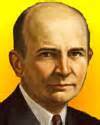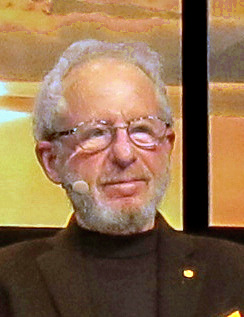A Quote by Charles Henry Parkhurst
All great discoveries are made by men whose feelings run ahead of their thinking.
Related Quotes
Hinduism has made marvelous discoveries in things of religion, of the spirit, of the soul. We have no eye for these great and fine discoveries. We are dazzled by the material progress that Western science has made. Ancient India has survived because Hinduism was not developed along material but spiritual lines.
It is notorious that the same discovery is frequently made simultaneously and quite independently, by different persons. Thus, to speak of only a few cases in late years, the discoveries of photography, of electric telegraphy, and of the planet Neptune through theoretical calculations, have all their rival claimants. It would seem, that discoveries are usually made when the time is ripe for them - that is to say, when the ideas from which they naturally flow are fermenting in the minds of many men.
The purest evil that human efforts could attain, in other words, was probably achieved by those men who made their wills the same and who made their eyes see the world in the same way, men who went against the pattern of life's diversity, men whose spirits shattered the natural wall of the individual body, making nothing of this barrier, set up to guard against mutual corrosion, men whose spirit accomplished what flesh could never accomplish.
The rational intellect doesn't have a great deal to do with love, and it doesn't have a great deal to do with art. I am often, in my writing, great leaps ahead of where I am in my thinking, and my thinking has to work its way slowly up to what the "superconscious" has already shown me in a story or poem.
When a candidate for public office faces the voters he does not face men of sense; he faces a mob of men whose chief distinguishing mark is the fact that they are quite incapable of weighing ideas, or even of comprehending any save the most elemental - men whose whole thinking is done in terms of emotion, and whose dominant emotion is dread of what they cannot understand. So confronted, the candidate must either bark with the pack or be lost... All the odds are on the man who is, intrinsically, the most devious and mediocre.
A gentleman, is a rarer thing than some of us think for. Which of us can point out many such in his circle--men whose aims are generous, whose truth is constant and elevated; who can look the world honestly in the face, with an equal manly sympathy for the great and the small? We all know a hundred whose coats are well made, and a score who have excellent manners; but of gentlemen how many? Let us take a little scrap of paper, and each make out his list.





































